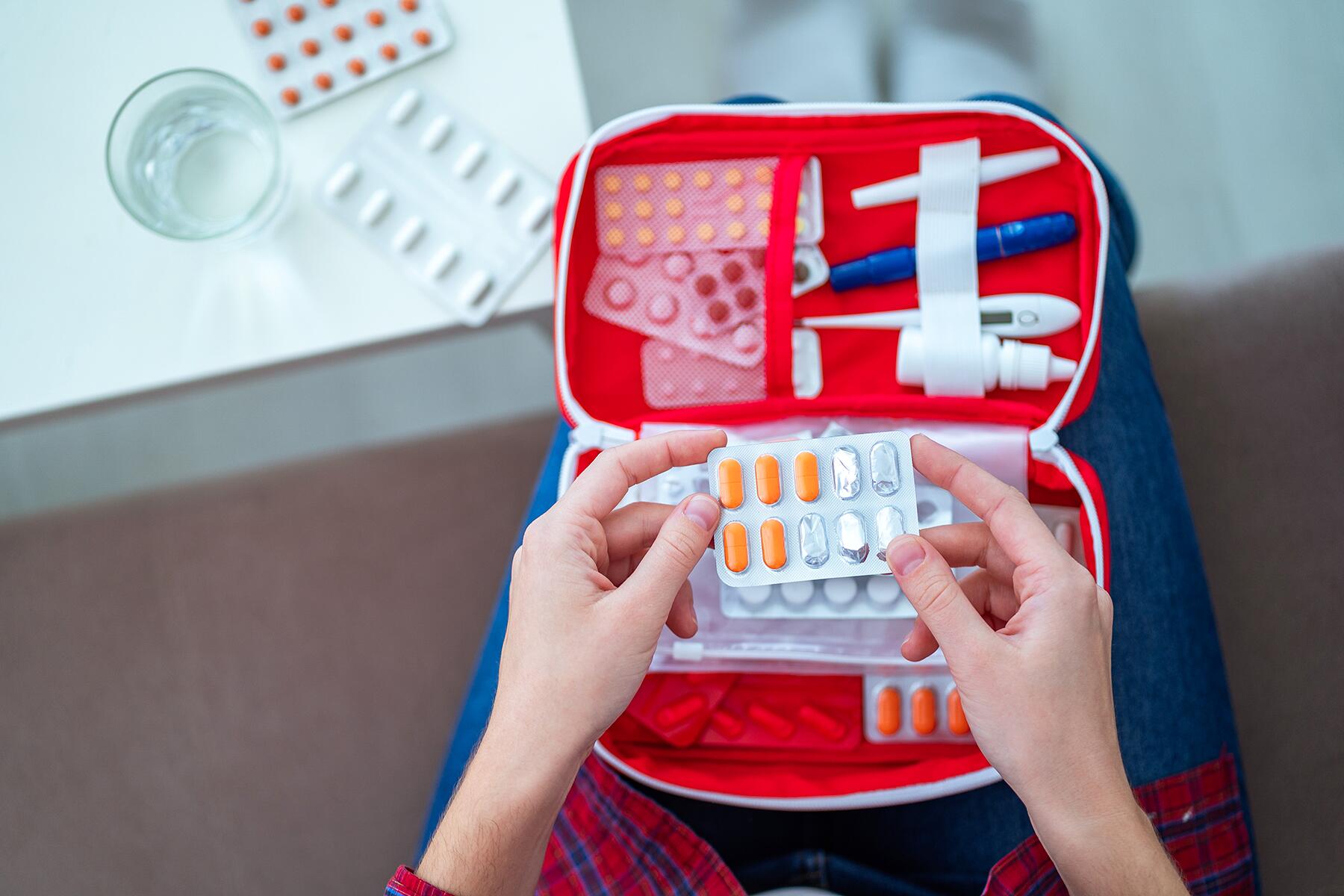Avoid entering panic-mode abroad by sticking to these tips and tricks.
Planning and preparing for your vacation goes beyond building itineraries–it’s important to factor in health, safety, and medications. With health top of mind, here are pharmacist-approved tips and advice for traveling abroad when it comes to medications.
Start Planning in Advance
Woo! You’ve finally booked your trip and you’ve started to make reservations, mentally noted what outfits you’ll pack, and shared the thrilling news with your friends. As you begin to do that, add “Check in with my physician or pharmacist” to the list. Having this interaction in advance is crucial to figure out if you’ll need additional medications and vaccinations specific to the destination you’re going to, or you’ll need refills for the medications you already take. It’s also a great opportunity to get general advice from your provider about diseases or experiences in other countries, like avoiding drinking tap water or wearing bug spray because malaria is prevalent.
Make Sure Your Supply Will Last
Healthcare systems vary across the globe, so you may not be able to find your medication or it may be difficult to obtain. If you do find them, they may not be of the same standards as they are in the US, and there’s a threat of landing counterfeit drugs as well. If you take daily medications, you’ll want to make sure you’ve gotten enough supply to last the duration of your trip. If you have refills, talk to your pharmacist to see if getting them filled ahead of time is possible. If you receive a 30-day supply and your trip is for two months, see if your insurance company allows for a 90-day supply and then notify your pharmacist. If you’re out of refills, you’ll want to let your provider know ahead of time so they can send over a new one.
Recommended Fodor’s Video
Have a Medication List
A helpful tip is to have a record of all your medications handy for your trip. It’s best to have the brand and generic name, the dose, the instructions, and even your prescribers information. Why? In case you find yourself in an emergency situation, you can provide this complete list to a healthcare professional. Also, drugs have different names in other countries. For example, the over-the-counter pain relief medication, acetaminophen, which is generic for Tylenol, goes by paracetamol in several European countries. You could share your medication list with a pharmacist and they may know common names of drugs internationally. Along with your medications, having your list of immunizations, medical conditions, and allergies may go a long way.
Obtain a Copy of Your Prescription
Having a copy of your prescription can be your proof while traveling through customs and security, and in case you lose your medication. With drug trafficking a big business and different countries having travel regulations for drugs, you never know when you may get stopped at customs or security. To avoid any inconveniences, having a copy of your prescription can be the proof you need. It’s also good to have in case you leave your medication at your hotel room, it melts while in your bag, or you spill the bottle. If you need a refill, you can seek assistance abroad and share the copy of your prescription with the medical provider to help them help you.
Research Any Travel Restrictions for Your Specific Medications
While a medication may be approved and allowed in the country you live in, it may be banned in another country. The best practice is to check with the foreign embassy or consulate of the country you’re visiting. For controlled substances, heavily regulated medications, a resource like the International Narcotics Control Board is worth checking.
Don’t Forget Any Over-the-Counter Medications
Just like your prescription medications, it may be tricky to find your common medications and ailments like your allergy medications, pain relievers, and anti-diarrheal. Grab the travel-sized versions to easily store them in your medicine bag for your carry-on. That way, if you’ve got a migraine on the airplane, sudden onset of allergies while wandering the outdoors, or you’ve got a bad case of the Delhi belly, medicine is readily available.
Double-check Storage Requirements
Depending on the medication you take, you may have to consider storage requirements. Does your medication need to be refrigerated? You’ll want to make sure that you have what you need to maintain the integrity of your medication. Aside from temperature, how are you storing your medications? It’s recommended that they remain in the original packaging, with your name (preferably matching the name on your passport).
Pack Smart
A lost suitcase is a nightmare and not the way you want to kick off a trip. Just like you’d keep any valuables on your person, treat your medications the same. Pack them in your carry-on so you have no risk of losing them.
Buying Medications Abroad
Buying medications at your destination may look completely different than what you’re used to. If you do have to buy medications on your trip, pick a reliable and trustworthy licensed pharmacy. Bringing your empty medication bottle, a copy of the prescription, or medication records could help the pharmacist find you what you need. Make sure you buy medications that are in their original packaging.




